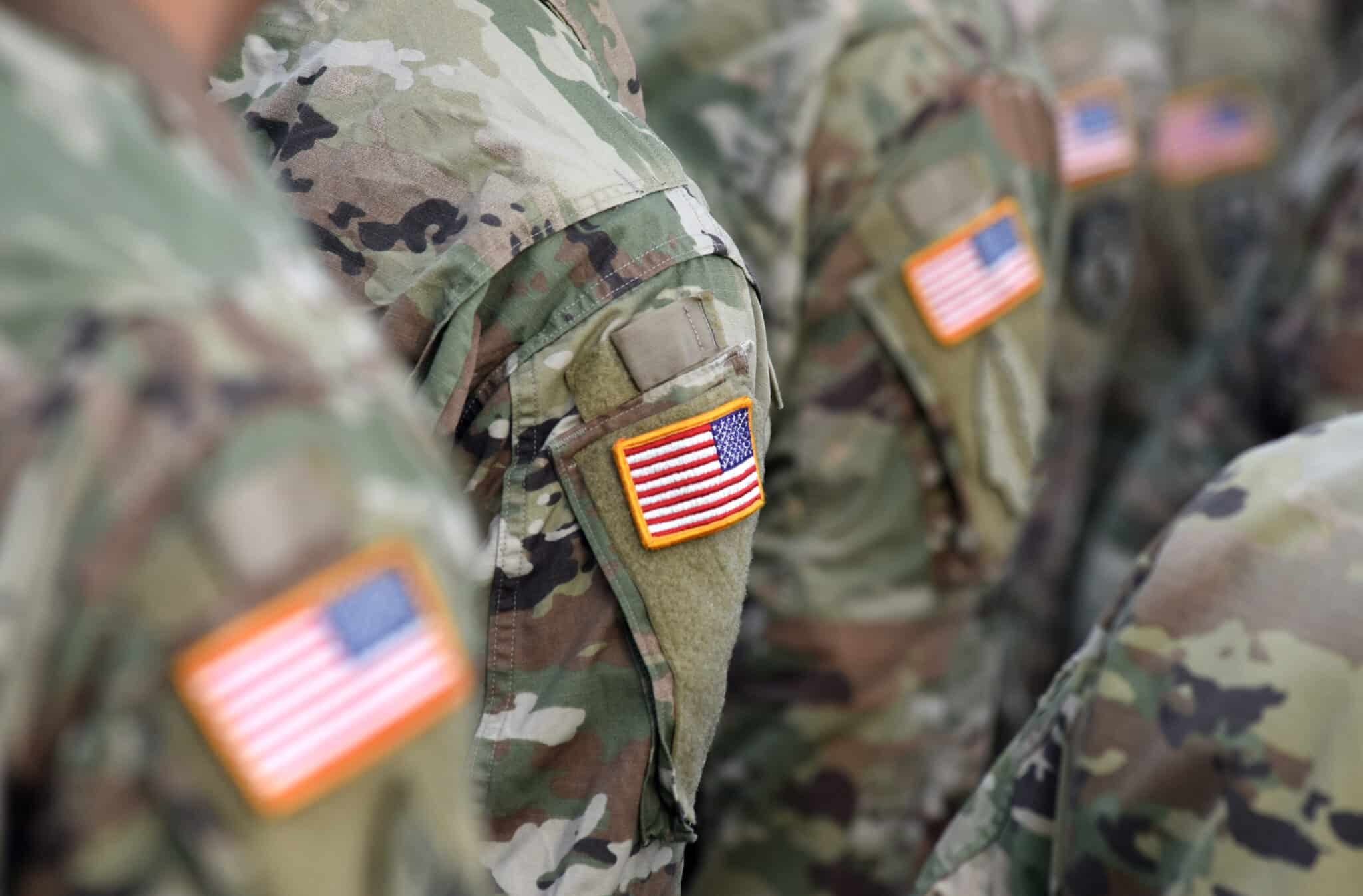Substance use disorders were identified among 7% of female veterans in the 2020 National Survey on Drug Abuse and Health. Fortunately, female veterans can achieve lasting recovery from substance use disorders by undergoing a continuum of specialized treatment that offers trauma-focused and gender-specific treatment options.
Co-Occurring PTSD Among Female Veterans
According to the United States Department of Veterans Affairs (VA), women are more likely to struggle with post-traumatic stress disorder (PTSD) than their male counterparts. Research shows that around 13% of female veterans will be diagnosed with PTSD versus 6% of male veterans. Female veterans may develop PTSD through:
- Combat-related experiences
- Service-related injuries
- Sexual trauma
Women serving in the military are far more likely to experience sexual trauma than male veterans. The VA defines military sexual trauma (MST) as experiencing sexual harassment or sexual assault while serving in the military. MST can include harassment on tour, assault by an officer or abuse by an intimate partner. According to one study, 23% of female veterans who accessed VA services had experienced at least one sexual assault while serving.
Unfortunately, the link between PTSD and substance abuse is well-documented. Research suggests roughly 10% of military veterans will be diagnosed with a substance use disorder (SUD) in their lifetime. While male veterans are statistically more likely to develop an addiction than female veterans, data shows that the rates of substance use disorders among female veterans seeking help from the VA rose 81% from 2005 to 2010.
Many veterans who struggle with PTSD also form a co-occurring substance use disorder. Veterans may often self-medicate to:
- Cope with traumatic events
- Numb emotions
- Reduce anxiety
As their substance use worsens, veterans can quickly form an addiction while their trauma-related mental health concerns go unresolved or even worsens.
Continuum of Care for Female Veterans
While every veteran is different, typically, treatment plans follow a continuum of care that starts at intervention and continues through aftercare. Once admitted to a treatment facility, veterans often participate in an initial medical, behavioral and mental health screening to help clinicians create a personalized treatment plan. If detox or psychiatric intervention is needed for stabilization, they may be referred to a medical detox program or inpatient care to begin treatment.
Typically, inpatient programming to treat substance use disorders can include:
- Highly-structured individual, group and family therapy
- Cognitive behavioral therapy (CBT)
- Dialectical behavior therapy (DBT)
- Educational classes on addiction and the recovery process
- Stress management and coping skills workshops
- A 12-step recovery model
- Recreational and art therapy sessions
These evidence-based approaches can also help identify underlying trauma. As the veteran completes inpatient care, clinicians typically create an aftercare plan to help them stay sober. This aftercare plan may include “stepping down” to:
- An outpatient program
- Sober living housing
- Attending support or 12-step groups
- Staying in touch with a case manager regarding progress
- Ongoing medication management, when necessary
Trauma-Informed Care for Veterans with PTSD
Along with core programming focusing on substance abuse, veteran treatment programs typically include trauma-focused care to address co-occurring disorders, such as PTSD. In addition to CBT or DBT sessions, veterans may participate in eye movement desensitization and reprocessing (EMDR) sessions.
This trauma-focused approach is designed to lessen the emotional triggers that are associated with specific traumatic events and change how trauma is stored in the brain. During EMDR, clinicians discuss topics while the veteran moves their eyes in a particular way. Thought to imitate rapid eye movement (REM) sleep, the evidence-based treatment has been effective in lessening the impact of past traumatic events.
In addition to individual therapy, veterans may attend group counseling and peer-support groups that focus on relevant topics for many veterans. These topics may include:
- Combat-related trauma
- Adjusting to civilian life
- Grief and loss
- Injuries
- Chronic pain
- Depression
- Suicidal ideation

Veteran Recovery Is Our Mission
The Recovery Village is an industry-leading treatment provider for addiction and co-occurring mental health disorders.
- Experienced clinicians: Our clinicians are specially trained in trauma-informed care, military culture and treating veteran-specific addiction and mental health needs.
- Dual diagnosis: We treat addiction and mental health disorders like PTSD, anxiety or depression simultaneously for a better recovery.
- EMDR: A revolutionary treatment available at several facilities, EMDR therapy alleviates mental pain and emotional recession from trauma, which can lead to better outcomes for your addiction.
- FORTITUDE: Our specialty track for veterans and first responders at select facilities puts you in exclusive group therapy sessions with your peers.
If you’re a veteran struggling with alcohol or drug addiction, our Veteran Advocates can help you navigate your VA health insurance and get you the help you need.
Gender-Specific Approaches for Female Veterans
While female veterans may participate in similar therapies as male veterans, all care plans or aspects of treatment may be provided in gender-specific environments. Gender-responsive programs offer specialized treatment that focuses on the unique emotional, social and relational issues common among women struggling with a substance use disorder.
Since female veterans are more likely to struggle with trauma related to sexual abuse and harassment than males. In many cases, female veterans may not feel comfortable processing this type of trauma in group therapy or educational classes with men present. In a gender-specific setting, female veterans can openly explore traumatic events in an environment that is:
- Safe
- Supportive
- All-female
According to the VA, female veterans are five times more likely to commit suicide than civilian women. Like anyone struggling with a substance use disorder or mental health disorder, the risk of suicide among female veterans increases greatly while in active addiction.
Fortunately, quality treatment programs can provide gender-specific, trauma-focused and evidence-based approaches to treating female veterans struggling with addiction. These specialized plans address topics related to both military service and women’s unique needs, helping improve treatment outcomes and promote lasting sobriety.
If you or a loved one are searching for specialized care for female veterans, we’re here to help. The Recovery Village provides onsite trauma-informed inpatient, partial hospitalization and intensive outpatient programming, and our outpatient services are provided via telehealth. We are proud partners of the VA Community Care Network and will work with your VA benefits. Reach out to our team today, and we’ll guide you through the admissions process.


National Center for PTSD. “How Common is PTSD in Veterans?” U.S. Department of Veterans Affairs, 2014. Accessed 24 May 2023.
NIDA. “Substance Use and Military Life DrugFacts.” National Institute on Drug Abuse (NIDA), October 23, 2019. Accessed 24 May 2023.
Street, A. & Stafford, J. “Military Sexual Trauma Information for B[…]ral Health Providers.” Center for Integrated Healthcare, National Center for Post-Traumatic Stress Disorder, July 2013. Accessed May 24, 2023.
SAMHSA. “2020 National Survey on Drug Use and Health: Veteran Adults.” Substance Abuse and Mental Health Services Administration (SAMHSA), U.S. Department of Health and Human Services, July 2022. Accessed May 24, 2023.
Teeters, J.B., et al. “Substance use disorders in military vete[…]treatment challenges.” Substance Abuse Rehabilitation, August 30, 2017. Accessed May 24, 2023.
VA & OMHSP. “Facts About Suicide Among Women Veterans.” U.S. Department of Veterans Affairs (VA), Office of Mental Health and Suicide Prevention (OMHSP), August 2017. Accessed May 24, 2023.
The Recovery Village aims to improve the quality of life for people struggling with substance use or mental health disorder with fact-based content about the nature of behavioral health conditions, treatment options and their related outcomes. We publish material that is researched, cited, edited and reviewed by licensed medical professionals. The information we provide is not intended to be a substitute for professional medical advice, diagnosis or treatment. It should not be used in place of the advice of your physician or other qualified healthcare providers.